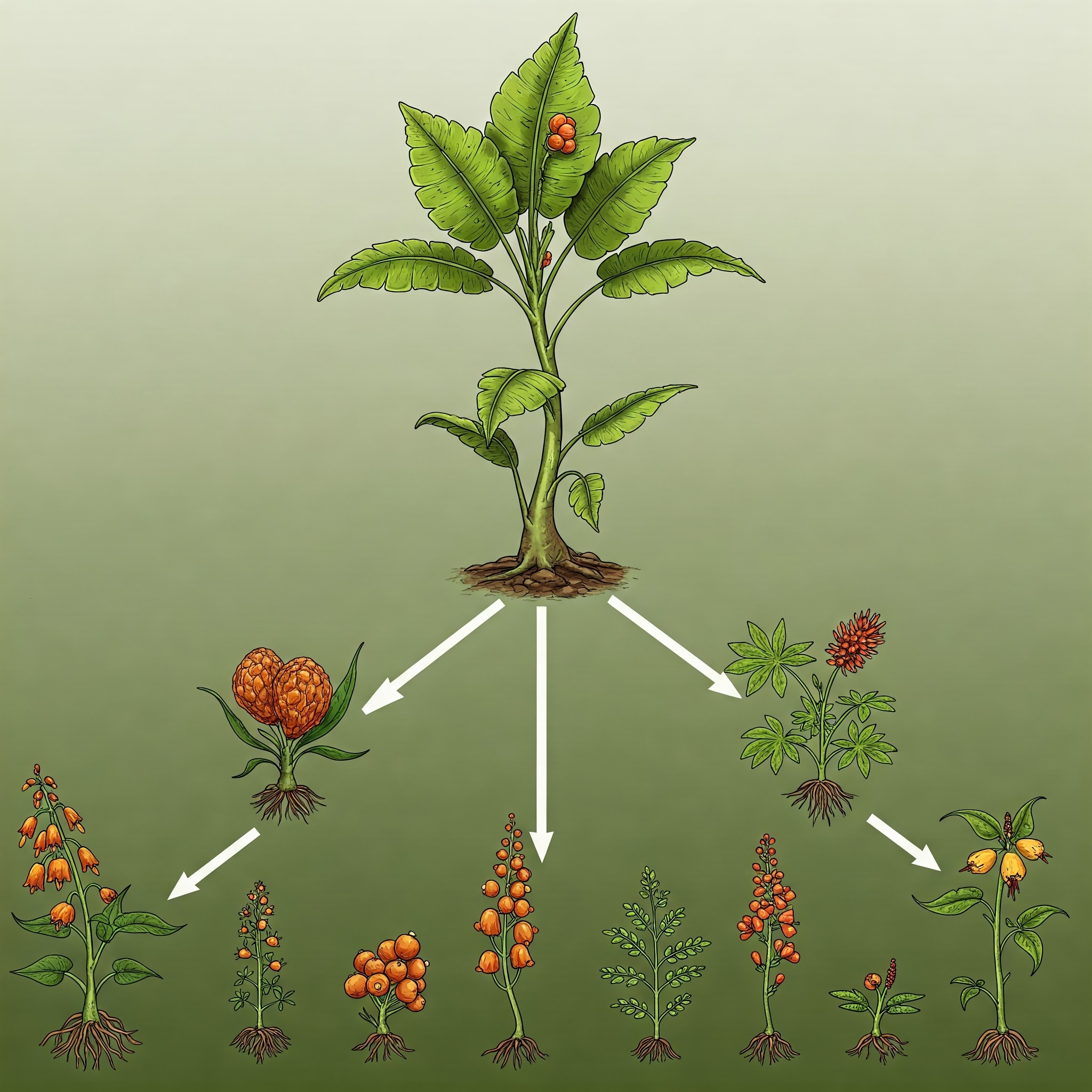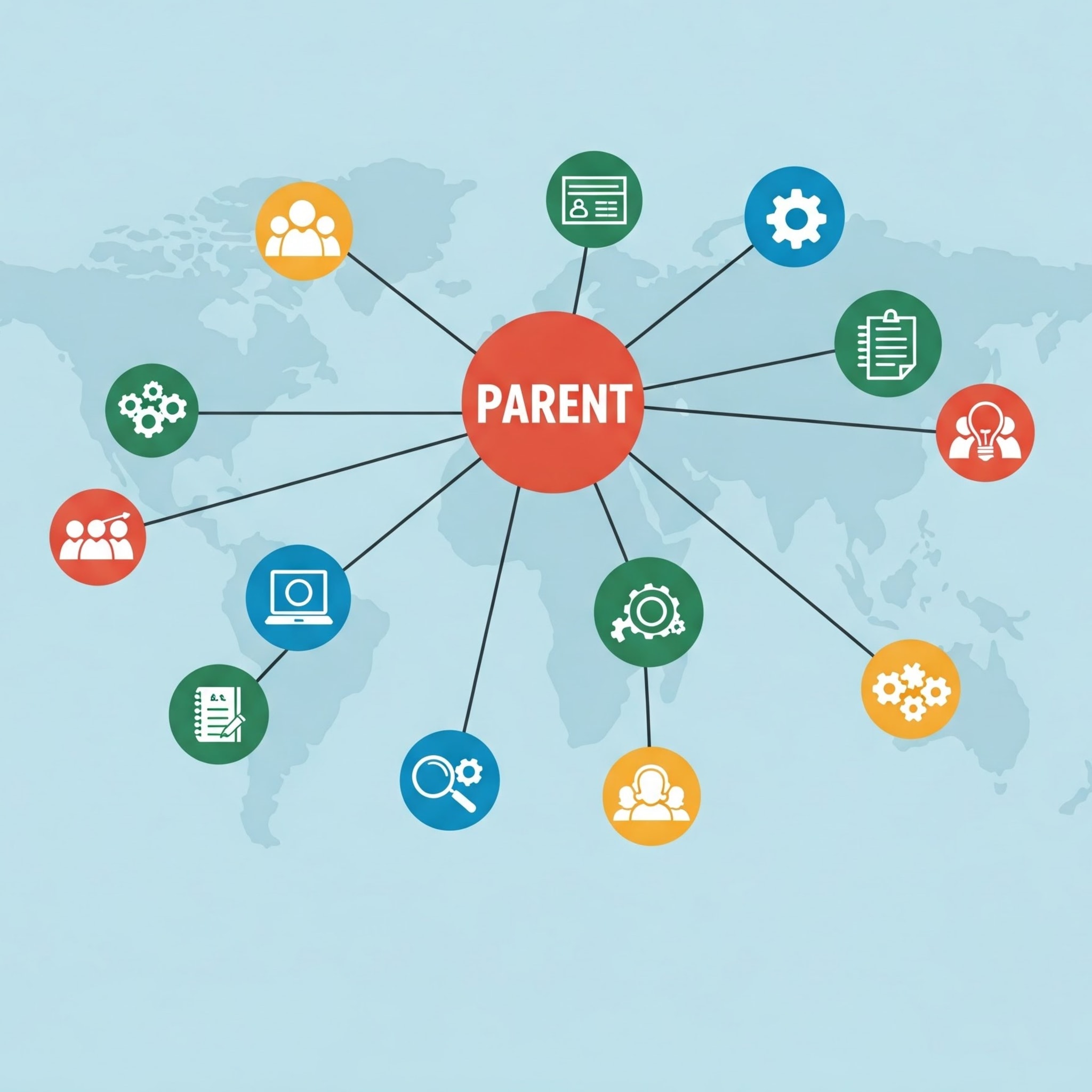Parent
Definition
A "parent" is a person who has a child or children, either biologically or through adoption. It also refers to an origin or source of something. As a verb, it means to care for and raise a child.
Parts of Speech
- Noun
- Verb
Pronunciation
American English
- IPA Pronunciation: /ˈpɛr.ənt/, /ˈpær.ənt/
- Respelling: PAIR-uhnt, PAR-uhnt
British English
- IPA Pronunciation: /ˈpeə.rənt/
- Respelling: PAIR-uhnt
Etymology
The word "parent" originates from the Latin "parentem," the accusative form of "parens," meaning "father" or "mother," derived from "parere" (to bring forth, produce, or give birth). It entered the English language in the early 15th century.
Derivatives
- Parental (adjective)
- Parenthood (noun)
- Parenting (noun/verb)
- Coparent (noun/verb)
- Overparent (verb)
Synonyms
- Guardian
- Mother
- Father
Antonyms
- Child
- Offspring
- None
Usage
The term "parent" is used in familial, biological, and figurative contexts. For example: "She is a loving parent," or "The organization acts as a parent company for smaller subsidiaries."
Related Terms
- Child: A son or daughter of a parent.
- Guardian: Someone legally responsible for a minor.
- Ancestor: A predecessor in the lineage.
Detailed Definitions
Noun
- A person who has a child or children: Refers to a mother, father, or guardian who raises a child.
- Example: "Being a parent is a lifelong responsibility."
- An origin or source of something: Refers to something that produces or gives rise to another.
- Example: "This species is thought to be the parent of modern-day plants."
- A controlling entity or organization: Describes a primary company or institution overseeing others.
- Example: "The parent company owns multiple subsidiaries."
Verb
- To care for and raise a child: Indicates the act of nurturing or supporting a child through growth.
- Example: "They parent their children with kindness and discipline."
parent



🇨🇳 Mandarin
- 父母 (fùmǔ) - parents
- IPA Pronunciation: /fu˨˩mu˨˩/
- Respelling in English: fu-mu
- 亲 (qīn) - parent, in a more general or affectionate context
- IPA Pronunciation: /t͡ɕʰin/
- Respelling in English: chin
🇮🇳 Hindi
- माता-पिता (mātā-pitā) - parents
- IPA Pronunciation: /maːtaː piːtaː/
- Respelling in English: ma-ta pi-ta
- अभिभावक (abhibhāvak) - parent, in a more formal or legal context
- IPA Pronunciation: /əbɦɪbɦaːʋək/
- Respelling in English: abhi-bhavak
🇪🇸 Spanish
- padres - parents
- IPA Pronunciation: /ˈpaðɾes/
- Respelling in English: pa-dres
- progenitor - parent, in a more formal or biological context
- IPA Pronunciation: /pɾoxeˈnitoɾ/
- Respelling in English: pro-he-ni-tor
🇫🇷 French
- parents - parents
- IPA Pronunciation: /paʁɑ̃/
- Respelling in English: pa-ran
- géniteur - parent, in a more formal or biological context
- IPA Pronunciation: /ʒenitœʁ/
- Respelling in English: zhe-nee-teur
🇸🇦 Modern Standard Arabic
- والدين (wālidīn) - parents
- IPA Pronunciation: /waːliːdiːn/
- Respelling in English: wa-li-deen
- أبوين ('abawayn) - parents, in a more general or affectionate context
- IPA Pronunciation: /ʔa.bwa.jin/
- Respelling in English: ab-wa-yin
🇧🇩 Bengali
- মাতা-পিতা (mātā-pitā) - parents
- IPA Pronunciation: /maːtaː piːtaː/
- Respelling in English: ma-ta pi-ta
- অভিভাবক (abhibhābak) - parent, in a more formal or legal context
- IPA Pronunciation: /ɔbʱibʱabɔk/
- Respelling in English: obhi-bhabok
🇷🇺 Russian
- родители (rodíteli) - parents
- IPA Pronunciation: /rəˈdʲitʲɪlʲi/
- Respelling in English: ro-di-te-li
- родитель (rodítel') - parent, in a more general context
- IPA Pronunciation: /rəˈdʲitʲɪlʲ/
- Respelling in English: ro-di-tel
🇵🇹 Portuguese
- pais - parents
- IPA Pronunciation: /ˈpajʃ/
- Respelling in English: pa-ish
- progenitor - parent, in a more formal or biological context
- IPA Pronunciation: /pɾoʒeˈni.tɔɾ/
- Respelling in English: pro-zhe-ni-tor
🇮🇩 Indonesian
- orang tua - parents
- IPA Pronunciation: /oːraŋ tua/
- Respelling in English: o-rang tua
- induk - parent, in a more formal or biological context
- IPA Pronunciation: /inˈduk/
- Respelling in English: in-duk
🇩🇪 German
- Eltern - parents
- IPA Pronunciation: /ˈɛltɐn/
- Respelling in English: el-tern
- Elternteil - parent, in a more general context
- IPA Pronunciation: /ˈɛltɐnteːl/
- Respelling in English: el-tern-teil
🇯🇵 Japanese
- 両親 (ryōshin) - parents
- IPA Pronunciation: /ɾʲoːɕiɴ/
- Respelling in English: ryo-shin
- 親 (oya) - parent, in a more general or affectionate context
- IPA Pronunciation: /o.ja/
- Respelling in English: o-ya
🇻🇳 Vietnamese
- cha mẹ - parents
- IPA Pronunciation: /caː mɛ˨˩/
- Respelling in English: cha me
- phụ huynh - parent, in a more formal or school-related context
- IPA Pronunciation: /fʊ˧ˀ˦ hwiɲ˨˩/
- Respelling in English: fu hwinh
🇰🇷 Korean
- 부모 (bumo) - parents
- IPA Pronunciation: /pu.mo/
- Respelling in English: boo-mo
- 가족 (gajok) - parent, in a more general context, also means family
- IPA Pronunciation: /ka.dʑok̚/
- Respelling in English: ka-jok
🇹🇷 Turkish
- ebeveyn - parents
- IPA Pronunciation: /ebevejn/
- Respelling in English: e-be-ve-yn
- ana - parent, specifically means mother
- IPA Pronunciation: /aːˈnaː/
- Respelling in English: a-na
🇵🇰 Urdu
- والدین (wāldain) - parents
- IPA Pronunciation: /waːldeːn/
- Respelling in English: wal-deen
- ماں باپ (mān bāp) - parents, in a more general or affectionate context
- IPA Pronunciation: /maːn baːp/
- Respelling in English: maan baap





